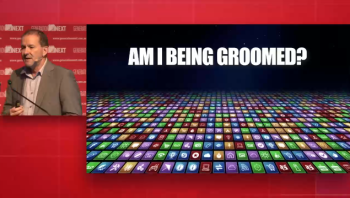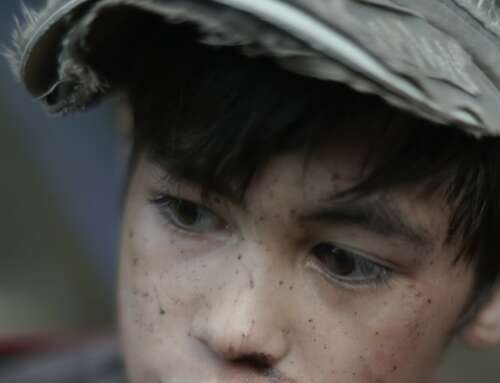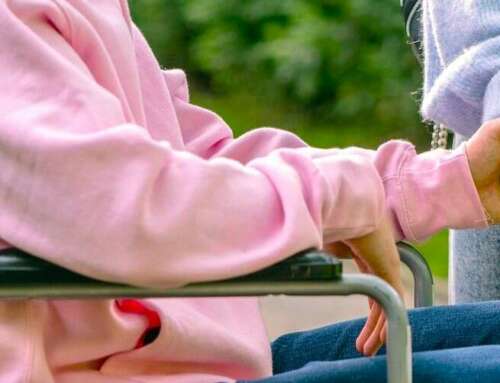Last Friday saw our speakers give stellar presentations at our second and final Student and Youth Wellbeing Program. As part of the National Day of Action Against Bullying and Violence, many of the presentations spoke to this theme which is becoming an increasing problem for young people.

Jonny Shannon started the day by relating both his personal experience of being bullied as a teenager, as well as how he turned his life around by working on his insecurities and the way he reacted to negative comments. He went on to outline some of the most common forms of miscommunication he’s now seeing in young people as a speaker on this topic, and what can be done to either reverse or live with them. One of the biggest issues is that the rise of so many text-based interactive platforms has meant that young people are missing out on the body language, tone and facial expression that makes up the greater part of interpersonal communication, leaving much more room for misunderstanding. Some young people have even told Jonny they’ve taken offence at a full stop in the wrong place! Because of this, Jonny suggested that sensitive conversations should happen in person or at least via phone whenever possible.
Jonny’s key takeaways for young people:
- Bullies are looking for a reaction, as this makes them feel powerful. The best way to stop bullying is to keep your cool.
- You can usually make friends with someone simply by showing and interest in them and wanting to learn more about them. Even something as simple as keeping some questions memorised to ask new people can be highly effective.
- Not everyone will like you, and there isn’t much you can do about it. The important thing is to take whatever criticism is valid from these people, and otherwise move on with your life and find the people who do like you.

Matt X then looked at the extreme reverse of the issue, again drawing heavily on personal experience. Growing up marginalised and abused, Matt became the leader of a racist gang and was on the verge of committing an act of terrorism. His path was radically altered when he was saved from violence himself by an asian person, who he’d been taught to hate his whole life. Having had his worldview shattered, he then had to commit to de-radicalising his friends, and has been combating the proponents of hateful ideologies ever since. He warned the youth audience of how hate speech is thriving online, often masked in the seemingly harmless veneer of memes. He also gave a brief outline of the recruiting tactics of hate groups, so that young people could potentially stop themselves and their peers being led down the same path he was.
Matt’s key takeaways for young people:
- Hate groups give a sense of belonging to the otherwise excluded or marginalised. Young people need to do their best to ensure all of their peers are welcomed and have support. If they do see someone having a hard time they should alert someone who can help.
- Leaders of hate groups in particular subject their followers to a cycle of emotional abuse similar to that of abusive partners, with the aim of creating emotional dependence. There will be times that these figures are full of praise and encouragement, only to later urge their followers to violence and then show disappointment that more wasn’t done. Young people who come into contact with these figures should know that any friendliness shown is manipulative.
- Information online should never be shared unless it can be determined firstly that the originator is who they claim to be, and also that said information isn’t disguised hate speech. If young people do come across hate material they should flag it before blocking the poster.

Next up was Brett Lee with his presentation ‘Are You Being Groomed? Brett covered a very specialised type of violence, the sexual abuse and coercion of young people online. It’s an area that Brett is almost uniquely equipped to talk about, having spent hundreds of hours interacting with child sex offenders as a detective while pretending to be a young person. He related to our youth audience the tactics employed by these individuals, from identifying and filling an emotional need in the victim, to desensitisation of sexual content, to persuading or coercing them into sex acts. While doing so he also related how young people can reduce their risk of being targeted by cyber predators, as well as what they can do at any stage of this process.
Brett’s key takeaways for young people:
- Cyber predators almost exclusively target the isolated, who don’t talk about what they do online with anyone in the real world. Young people should always talk about their online interactions with someone close to them, particularly anything suspicious.
- If you haven’t met someone in real life, they’re a stranger to you. You shouldn’t share more information about yourself with them than you would with a stranger in the street. By extension, you need to be careful about your privacy settings and how much information you’re making publicly available.
- Many Internet platforms give the illusion of privacy, but the Internet is the most public place imaginable. Never assume that just because you’ve shared something in confidence online that it won’t be made public, or that the threat of making it public won’t be used against you.

The day concluded with a lesson on resilience and forgiveness from Gill Hicks with her talk ‘What’s the Worst that Can Happen?’ Gill related her incredible story of having been a victim of the 7/7 London bombings where she lost both her legs, and having used her willpower to not only recover, but to go on to become an internationally recognised advocate for peace. The process changed her from an individualist to having a keen appreciation of the interconnectedness of all people, and recognition that this can be a pleasure but is also a responsibility. Her goal now is to reduce the ignorance which can cause people to hate and blame other groups of people when unchecked.
Gill’s key takeaways for young people:
- Mental strength is the most powerful attribute someone can possess. It’s what allowed Gill to relearn to walk without legs, far more than retraining her body.
- Although it’s important to have goals, your circumstances may force you to radically reframe what constitutes success for you. This doesn’t mean you need to be any less ambitious, but to recognise that sometimes the path your life takes isn’t one you ever would have imagined.
- You should never assume something about someone you don’t know, especially not on the basis of broad categories like race or religion.
Our audience made great use of the interactive components of the day, but of course many more questions were asked than our speakers had time to answer. To make up for this, we’ll be fielding some of these questions via our Youtube channel, our podcast and upcoming editions of the newsletter. If a young person has a question on these topics that they didn’t ask previously, please encourage them to write to info@generationnext.com.au.







Leave A Comment